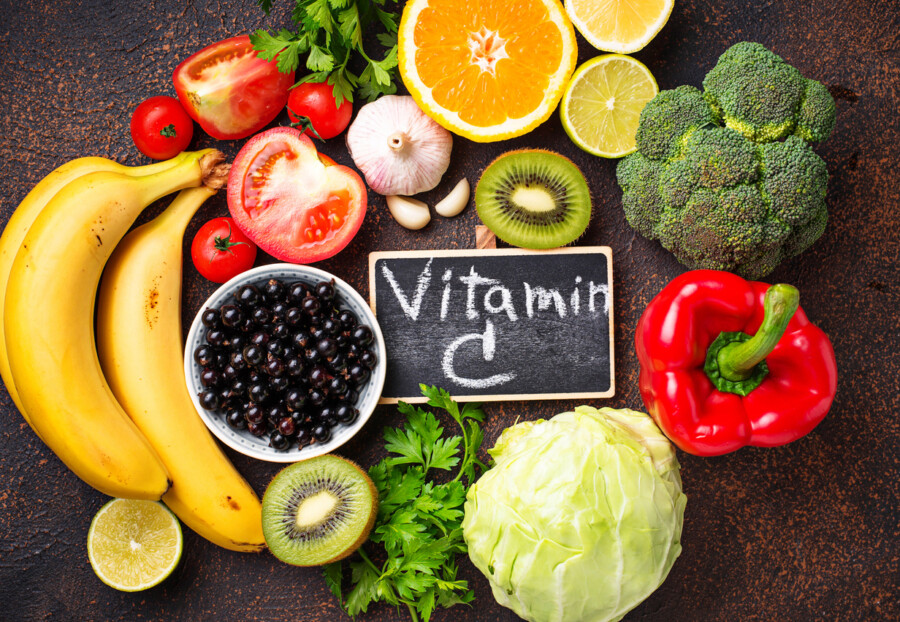What Vitamin Helps With Varicose Veins?

Need a remedy for painful varicose veins? These specific vitamins and minerals could help.
Modern medicine has come far in erasing the pain and unsightly appearance of varicose veins. Minimally invasive outpatient procedures allow you to return to your normal activities within hours. Non-surgical methods such as compression stockings, reduce the discomfort of bulging veins.
But could you also find a remedy for your varicose veins in the vitamin aisle at your local grocery store?
You can — to an extent. That’s because the food you eat and the supplements you take have a large impact on your vascular health. If you are looking for a more natural approach to alleviate the pain and itching of varicose veins, or if you want to prevent varicose veins from developing, you can start by increasing your intake of certain vitamins.
The Best Vitamins for Varicose Veins
Blood circulates through your body with the help of arteries and veins. Arteries pump oxygen-filled blood from your heart to your tissues and organs. Veins push the blood back to the chest, where it’s refreshed with another shot of oxygen. This efficient system depends on tiny valves in the veins that thrust blood upward. However, due to age, obesity, pregnancy, and other factors, the flaps lose their strength and elasticity, and blood leaks back into the vein. As the blood builds up, the vein enlarges, and a varicose vein appears, most often on the legs and feet.
Increasing these vitamins in your daily diet can help your veins function more efficiently. Fortunately, many fruits and vegetables are packed with the four vitamins listed here. You can also purchase a supplement to increase your intake.
Vitamin C. Long promoted for its inflammation- and antioxidant-fighting properties, vitamin C also contributes to vein health. That’s largely due to the vitamin’s collagen-producing capabilities. Collagen helps to maintain strong, flexible veins and repairs existing damage to the veins, making them less likely to weaken and form varicose veins. Because we lose collagen as we age, we need to replace it by eating foods rich in vitamin C or by taking a supplement. Create a meal plan around colorful fruits and vegetables like berries, broccoli, oranges, lemons, and tomatoes to ensure you get enough vitamin C.
Vitamin E. Vitamin E isn’t just for healthy skin. This crucial vitamin also improves circulation and may even lower the risk of blood clots. Varicose veins have been linked to an increased risk of blood clots, and vitamin E prevents platelets from sticking to blood vessel walls. If your legs cramp from constricted veins, a dose of vitamin E reduces the discomfort. Vitamin E can be found in sunflower seeds, almonds, spinach, avocados, squash, kiwifruit, fish, olive oil, and kiwis.
Vitamin B. Another blood clot-buster, the vitamin B family — vitamin B6, B12, thiamin, riboflavin, niacin, folate (folic acid), biotin, and pantothenic acid — helps rid the bloodstream of homocysteine, an agent associated with recurrent blood clots. It also strengthens the blood vessels and helps repair damaged varicose veins. Good sources of vitamin B include fish and meats, especially liver, tuna, and turkey; grains such as brown rice, wheat, and barley; tofu, chickpeas, spinach, chili peppers, lentils, bananas, and potatoes.
Diosmin. A flavonoid found naturally in many fruits and vegetables, the antioxidant diosmin combats inflammation and harmful free radicals. One study concluded that diosmin lowered oxidative stress in people with chronic venous insufficiency. Citrus fruits, especially orange rinds, contain high amounts of diosmin. Alternately, you can purchase a supplement of 90 percent diosmin and 10 percent hesperidin, another flavonoid.
Before you take any vitamin supplement, check with your doctor. Even if it's good for you, any vitamin may interfere with other prescription medications you need.
Known Your Varicose Vein Treatment Options
While a healthy diet can support vein health, the only proven cure for painful varicose veins starts with a call to a qualified vein expert. Center for Vein Restoration offers a wide variety of the latest diagnostic and surgical options for varicose veins and other venous disorders. Contact us today for a consultation. Center for Vein Restoration offers the latest in diagnostic and surgical care for varicose veins and other venous disorders. Contact us today for a consultation.